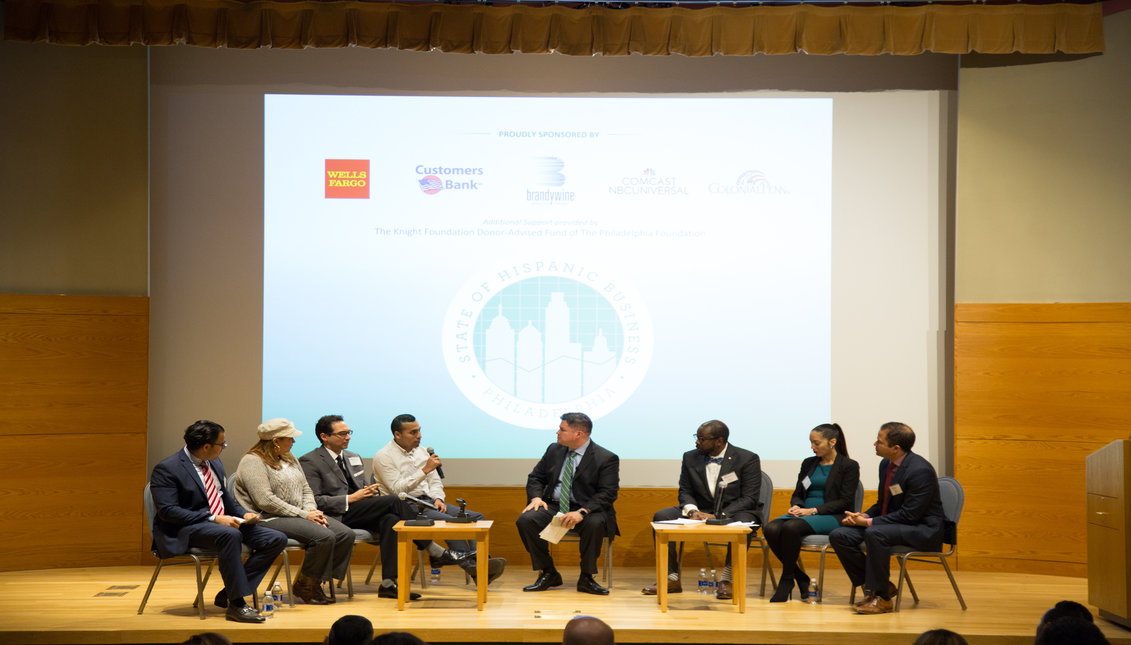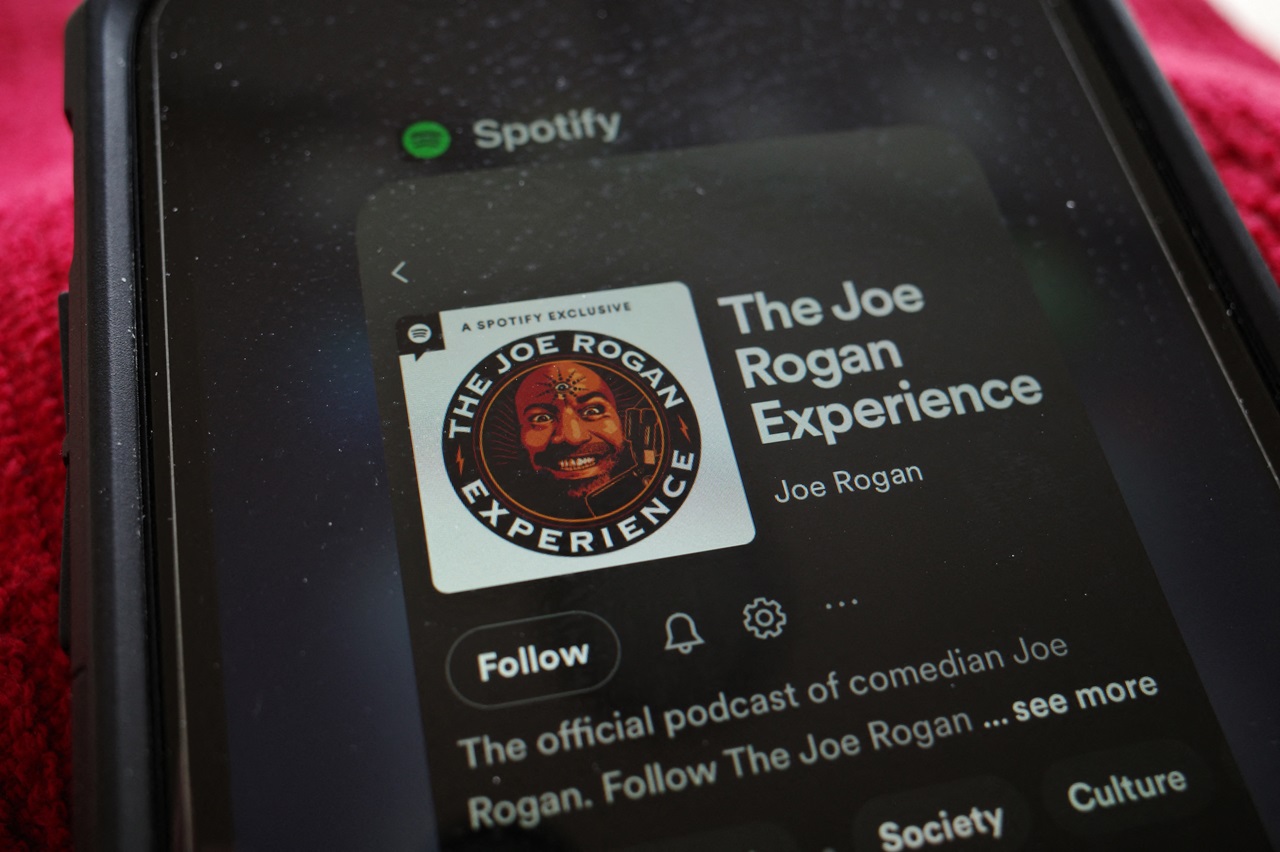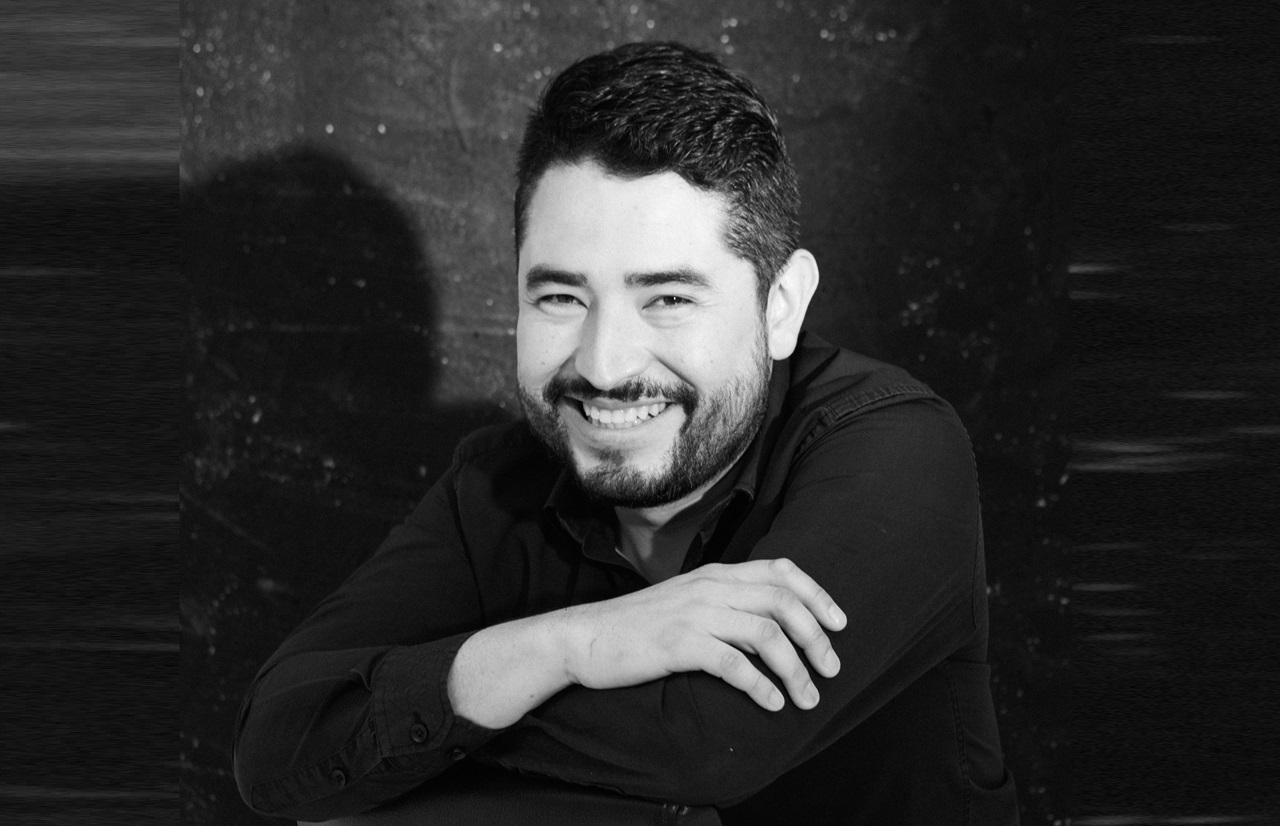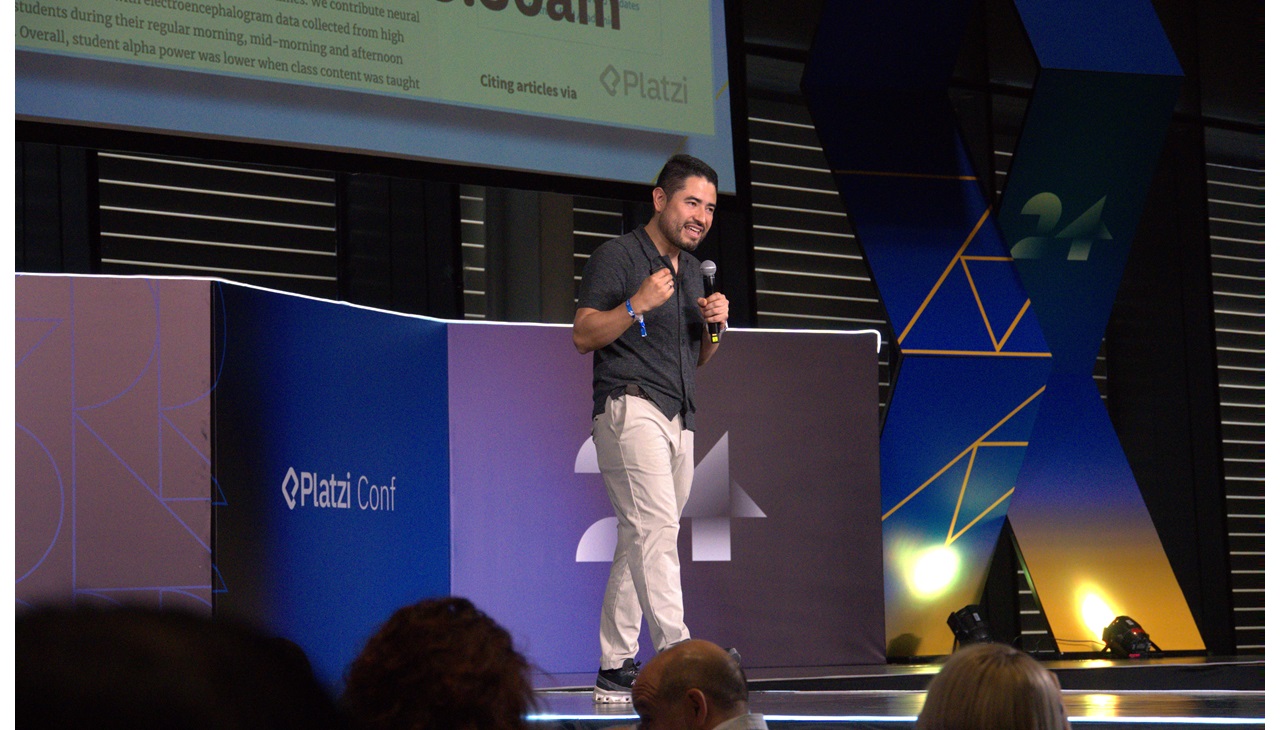
It's time to talk business
The Greater Philadelphia Hispanic Chamber of Commerce held the "State of Hispanic Business," a symposium dedicated to the current business climate for Latino…
When it comes to having an impact on the U.S. economy, Latinos are far more than just consumers; they’re an entrepreneurial force.
It’s time to talk about it.
On Nov. 7, the Greater Philadelphia Hispanic Chamber of Commerce (GPHCC) held the State of Hispanic Business, a symposium dedicated to the current business climate for Latino-owned businesses in the Philadelphia region. Here, Jennifer Rodríguez, President and CEO of the of GPHCC, highlighted that, when Latinos and the economy are brought up in the national conversation, the discussion largely concentrates on Latinos as consumers.
This focus on Latino buying power and growth is understandable, considering the effect Latinos have and will continue to have on the U.S. consumer economy. Rodríguez outlined some impressive statistics :
The already significant Latino population in the U.S. is rapidly growing, projected to reach 120 million by 2060.
Latinos control $1.3 trillion in spending power, which is greater than the GDP of nations like Spain and Australia.
Latinos are expected to comprise of half of new homebuyers in the next 20 years.
While these figures are positive, Rodríguez said the vital economic role of Latinos as entrepreneurs remains largely unexamined in the U.S. spotlight.
“Latinos are the future of the consumer economy,” Rodríguez said. “But we know far less about Latino-owned businesses, and that’s why we’re here today.”
Rodríguez was addressing the more than 100 attendees at the State of Hispanic Business event, which was held at the Federal Reserve Bank of Philadelphia.
The program presented a statistical overview, illuminating insights on the dynamics of entrepreneurship within the region’s Hispanic community. There are more than 18,000 Latino-owned businesses in the Philadelphia area.
According to the U.S. Hispanic Chamber of Commerce (USHCC), there are more than 4.4 million Latino-owned businesses nationwide, contributing annually more than $700 billion to the national economy.
The timing of the State of Hispanic Business is appropriate considering a recent announcement from USHCC. For the first time in more than a decade, the organization will bring its National Convention to Philadelphia in 2018. This event is the largest networking venue for Hispanic businesses in the U.S., bringing thousands of Hispanic corporate executives and business owners, presenting opportunities for local entrepreneurs to establish regional and national connections.
The State of Hispanic Business symposium was hosted by Ines Ferré, investigative reporter at Telemundo 62, and opened with remarks from GPHCC Chairman Louis Rodriguez. Before a panel discussion that included local Latino entrepreneurs, Jennifer Rodríguez and Paul Flora, Research and Policy Senior Economic Analyst at the Federal Reserve Bank of Philadelphia, delivered and explained findings on the business environment for Latino entrepreneurs.
[node:field_slideshow]
Citing research conducted by Stanford University, which focused on Latino-owned businesses nationwide, Rodríguez began her overview of Latino entrepreneurship with the good news.
Latinos start businesses at a higher rate than the rest of the population, Rodríguez said, noting that the number of Latino-owned businesses grew by 40 percent between 2007 and 2012, a time period fraught with widespread economic uncertainty. The number of firms owned by other groups decreased during the same six years.
“This means that during the Great Recession, while everybody else was closing shop, Latinos were actually building and creating businesses,” Rodríguez said. “Creating jobs.”
The chamber president also debunked common misconceptions about Latino entrepreneurial endeavors, including the idea that Latino-owned businesses do not succeed because they exist in low-growth industries. In reality, Rodríguez indicated that Latino-owned businesses are overrepresented in four of the top five U.S. growth industries, such as construction and administrative support.
Rodríguez also dispelled the myth that Latino-owned businesses cater only to the Hispanic community, which is a misconception often blamed for low business growth.
“Approximately 75 percent of Latino businesses serve mostly non-Latinos or serve an equal proportion of Latino to non-Latinos,” she said.
Flora provided an overview of Latino-owned businesses in the Philadelphia Metropolitan Area, which includes the city and its 10 surrounding counties. Using data collected primarily by the Census Bureau in 2012 and released in 2015, Flora found that Latinos make up about nine percent of the metropolitan population, but only account for about five percent of total business owners.
Latino-owned businesses were underrepresented in most business sectors in the Philadelphia metro, including construction, health services, and food and lodging, Flora said. Business sectors where Latinos are represented at or near the same rate as the population in the Philadelphia metro include:
Administrative services: office support, job placement, travel, building services, waste management, etc.
Other services: repair/maintenance, personal/laundry, religious, grant-making, private households, etc.
Broadening this local perspective, GPHCC conducted a survey of its members with the help of the Fox School of Business to make determinations about the Philadelphia region’s Latino business community.
The chamber found that about 75 percent of Latino-owned businesses in the region are owned by immigrants, Rodríguez said, adding that the number of immigrants in the region has doubled since 1990.
The chamber determined that, generally, Latino-owned businesses in the Philadelphia area:
Are less than 10 years old
Have fewer than 5 employees
Accrue less than $1 million in sales
Have a positive outlook
Most of the businesses the chamber surveyed have commercial bank accounts and insurance, but only half have a website while even fewer have a commercial line of credit. Less than 30 percent have a business plan, a concept that is crucial for businesses seeking to expand.
Rodríguez said that the Philadelphia region’s Latino-owned business are challenged by a lack of access to capital, as well as finding ways to attract new consumers and increase profits.
These difficulties are reflected in a daunting statistic, which was one Rodríguez emphasized: nationwide, only three percent of Latino-owned businesses reach or exceed $1 million in annual revenue.
“For every dollar that a non-Latino business generates, a Latino-owned business will generate 25 cents,” Rodríguez continued, adding that this figure accounts for an economic gap of $1.3 trillion.
Rodríguez vowed that GPHCC will continue its outreach and education efforts to help Latinos in the area overcome this disparity.
“At the chamber, we know that Hispanic businesses have the potential to grow and break through that million dollar revenue mark,” Rodríguez told the audience. “GPHCC is ready and willing to take on the challenge, and we invite you to partner with us in the solution.”
RELATED CONTENT
GPHCC will release a full report on the State of Hispanic Business in March 2018.
To hear firsthand from local Latino entrepreneurs about the Philadelphia region's business environment, as well as their motivations and aspirations, the State of Hispanic Business included a panel discussion, moderated by Michael Rivera, Associate Professor of Strategy and Entrepreneurship at the Fox School of Business. Rivera is also the Executive MBA Academic Director at the School. The panel included four entrepreneurs and three stakeholders of the Hispanic business community.
Nestor Torres is owner of graphic design and specialty printing studio Casa Papel. When the entrepreneurs on the panel were asked what motivates them, Torres said that he once worked for a multinational corporation, but he decided his efforts would be more lasting if he founded his own company, providing long-term benefits for his loved ones.
“Leaving a legacy for my children and my family was a big priority for me,” Torres said. “Starting a business was like having an asset that would continue to give to future generations.”
Torres said being an entrepreneur is about taking large risks and feeling comfortable in doing so.
“From an entrepreneurial standpoint, it’s all about grit,” Torres said.
For example, when he was starting Casa Papel, consultants told Torres he should not call his company by a Spanish name because it “won’t attract a larger audience”
Torres defied this advice, and it paid off. Today, Casa Papel has worked with a number of mainstream clients, including the Democratic National Committee and the City of Philadelphia.
Like many Latino business owners, Miguel Toro and his family funded the launch of Old City restaurant El Balconcito using mostly their own personal savings. After establishing the business, Toro gained knowledge about different ways to access capital by joining entrepreneurial groups and attending the Goldman Sachs 10,000 Small Businesses Program at the Community College of Philadelphia.
“I learned that we could get some money from banks or from other sources, and that’s how we decided to open the new restaurant,” Toro said, referring to Vista Peru, which will open soon in South Philadelphia.
Yazmin Auli started Puerto Rican bakery Panadería El Coquí with $10,000 in savings. Now, to grow her business, she has used resources offered by the Philadelphia-based non-profit lending institution FINANTA. Carolín Jiménez, Assistant Vice President of Microlending at FINANTA, also joined the panel.
Curtis J. Gregory is the Senior Director for the Office of Business Services in the Department of Commerce of the City of Philadelphia. He stressed how crucial it is for Latino entrepreneurs looking to expand their business to have a business plan.
“If you’re looking for capital and you don’t have a business plan, that’s kind of like looking for a job without a resume,” Gregory said. “You’re only going to get so far.”
He also encouraged Latino entrepreneurs to get involved with GPHCC to learn about the business environment beyond their own company’s day-to-day operations.
“You’re not going to know what’s going on in your community if you’re not involved, if you’re not a member of the Hispanic Chamber of Commerce,” Gregory said.
Also, Gregory noted it is key for Latino entrepreneurs to manage and utilize their social media presence via platforms such as Facebook.
“If you don’t know what your social media reputation is, and I can promise you you’ve got one, then you may be vulnerable,” Gregory said. “Good or bad, you do have a reputation on social media.”
From the audience, Kenny Roberts of USHCC asked the panel how organizations like his can be a better resource for entrepreneurs. In response, Miguel Peralta, owner of Corner Food Market I & II, spoke of a need for access to capital. When Peralta arrived in the U.S. as an immigrant from the Dominican Republic, he said banks would not help him start his business because he had no credit.
Jimmy Durán, Director of Programs for GPHCC, affirmed his organization’s commitment to the Philadelphia region’s Hispanic community to assist all “lifecycles of entrepreneurs,” whether these business owners are just starting or already established.
“What we’re looking to create at the chamber is a platform in which anyone at any level of the life cycle can come, interact, engage and get resources, information and support,” Durán said.











LEAVE A COMMENT:
Join the discussion! Leave a comment.